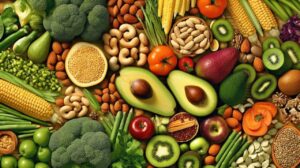
Chiropractor in W.P.B.: Multiple Sclerosis and Nutrition is about how chiropractic in conjunction with nutrition can be a solution for managing and reducing the symptoms of Multiple Sclerosis (MS). While there is no known cure for MS, research shows some healthy behaviors can positively impact your MS development, quality of life and ultimately your life expectancy
Chiropractor in W.P.B: What is Multiple Sclerosis (M.S.)?
Typically, M.S. patients are less than 55. And it is more prevalent in women than men. Often, MS appears in patients who reside in temperate climate zones and are of western European ethnicity. Relapses commonly occur in women 2 to 3 months after childbirth.
MS is characterized by episodic attacks that initially resolve, but eventually leave residual neurologic deficits. And the initial episode often will resolve in days. Next, the patient may remain symptom free for months or years. Eventually, however, symptoms recur. Lastly, Symptoms usually will involve a region and consist of numbness, tingling, weakness, diplopia (double vision), dizziness, or urinary sphincter dysfunction (urgency or hesitancy).
Chiropractor in W.P.B: What is the Cause of M.S.?
First, the cause of MS is unknown, but scientists think it may be an immune disorder (condition in which the body attacks itself by mistake).
Second, There is an apparent genetic relationship due to the association of MS and HLA-DR2. The human leukocyte antigen (HLA) is a family of genes found on chromosome 6 which provide the instructions to make a group of proteins known as the HLA complex. The HLA proteins are present on the surface of cells, and they help the immune system to distinguish foreign invaders such as viruses and bacteria from the body’s own cells and tissues.
Third, the primary role of the HLA complex is in the regulation of the immune system to defend against disease. Your individual HLA type is inherited from your parents. In MS, the immune system fails to distinguish between the body’s tissues and foreign proteins. This results in your body attacking your own central nervous system.
Fourthly, MS attacks myelin as if it were foreign. And Myelin is an insulating layer, or sheath that forms around nerves, including those in the brain and spinal cord. MS is a disease characterized by patchy demyelination with reactive gliosis. Gliosis is a process leading to scars in the central nervous system that involves the production of a dense fibrous network of neuroglia (supporting cells) in areas of damage. This occurs in the spinal cord, optic nerve (nerve for transmitting visual images), and white matter of the brain. And Gliosis is a prominent feature of many diseases of the central nervous system, including multiple sclerosis and stroke.
Chiropractor in W.P.B: Diagnosis and Findings on Imaging for M.S.
Indeed, no single test can diagnose MS. The medical history, neurologic exam and lab tests helps rule out other diseases and confirm MS. For example, Laboratory evaluation may reveal mild lymphocytosis (increased white blood cells) or increased protein count in the cerebrospinal fluid (CSF). Immunoglobulm G (type of antibody) are more often seen in the CSF.
Finally, Magnetic Resonance Imaging (MRI) will demonstrate multifocal areas of patchy demyelination in the brain or cervical (neck) spinal cord.

Chiropractor in W.P.B:Helpful Supplementation/Nutritional Recommendations for Multiple Sclerosis
Calcium and magnesium– studies found may help with relapses of MS
Coenzyme Q10 90 mg plus Coenzyme A– helps with fatigue and mood elevation in MS and for strengthening the immune system
Essential Fatty Acids- (e.g. Gamma-linolenic acid (GLA), flax seed oil, primrose oil, omega-3 essential fatty acid complex)- Deficiency is frequent in MS patients
Garlic – antioxidant and anti-inflammatory effects in multiple sclerosis
Methylsulfonyl-methane (MSM)- for pain and exhibits antiinflammatory properties.
Acidophilus- Important for digestion and absorption of nutrients
Creatine – to help with muscle atrophy (loss of muscle mass) common in MS
Free form amino acid complex– predigested/separated amino so available readily for use by the body.
Grape seed extract– A strong antioxidant and reduces inflammation
Multienzyme complex- processing food properly
Nicotinamide adenine dinucleotide (NADH)- for repair, metabolism and energy
Multiglandular complex– to help endrocine and hormonal systems
Selenium- an antioxidant and immune system booster
7-keto DHEA- may help fat loss by increasing metabolism. Also, may help increase muscle mass.
Vitamins: Vitamin A (with carotenoid), C and E with bioflavonoids – An antioxidant and immune system stimulant. Fights free radical damage. Vitamin B complex plus extra vitamin B6 (pyridoxine) and vitamin B12 and choline and inositol (vitamin B8)- Assists immune system function and keeps nervous and immune systems function better Vitamin D– To help calcium absorption Vitamin K-may help with nausea and good for bone health
Herbs– Burdock, dandelion, echinacea, goldenseal, pau d’arco, red clover, St. John’s wort, sarsaparilla, and yarrow are great detoxifiers. Lobelia, skullcap, and valerian root calm the nervous system and may help with insomnia.

Chiropractic WPB: Lifestyle/Diet Recommendations for MS:
While there are numerous diets for MS, the Mediterranean diet appears to be the best. Moreover, the best diet maybe mostly vegetarian for MS. So try to eat lean meats and wild caught fish (salmon,flounder, cod) if necessary. Eat plenty of fresh vegetables and fruits.
Heat/ warm surroundings should be avoided. A higher body temperature makes it harder for demyelinated nerves to conduct electrical impulses. This can make it more difficult for you to function. Therefore, avoid exposure to heat, such as hot baths, showers,sunbathing, and overly warm surroundings. Swimming in cool water is a good choice. Learn techniques to de-stress and beat anxiety. Plenty of sleep is important as exhaustion may trigger an attack.
First, avoiding processed foods and eating mostly organically grown foods will help decrease chemicals and additives.
Second, Gluten and dairy should be avoided. Cow’s milk is hard to digest for many people. Many people have food allergies that are making their conditions worse. Gluten may be one of yours.
Third, excess Sugar causes inflammation and interferes with your immune response.
Fourth, alcohol and smoking should be omitted
Fifth, drink plenty of good quality water (8 glasses) everyday.
Chiropractor in W.P.B.: Multiple Sclerosis and Nutrition
Are you seeking a natural treatment to help relieve Multiple Sclerosis (MS) symptoms? Chiropractic is a popular CAM (complementary alternative medicine) therapy for symptom relief of M.S. Your chiropractor in W.P.B. can help you manage your symptoms and improve your overall quality of life. Call 561-253-8984 today to make an appointment or to find out more about Chiropractor in W.P.B.: Multiple Sclerosis and Nutrition.
References: Handbook of Preventative and Therapeutic Nutrition by James M. Gerber,M.S., D.C.
Prescription for Nutritional Healing (3rd edition), Phyllis A. Balch, CNC
Thomas Souza, (2018) Differential Diagnosis and Management for the Chiropractor
*Please consult your doctor (M.D. who is monitoring your condition) about the above supplements.